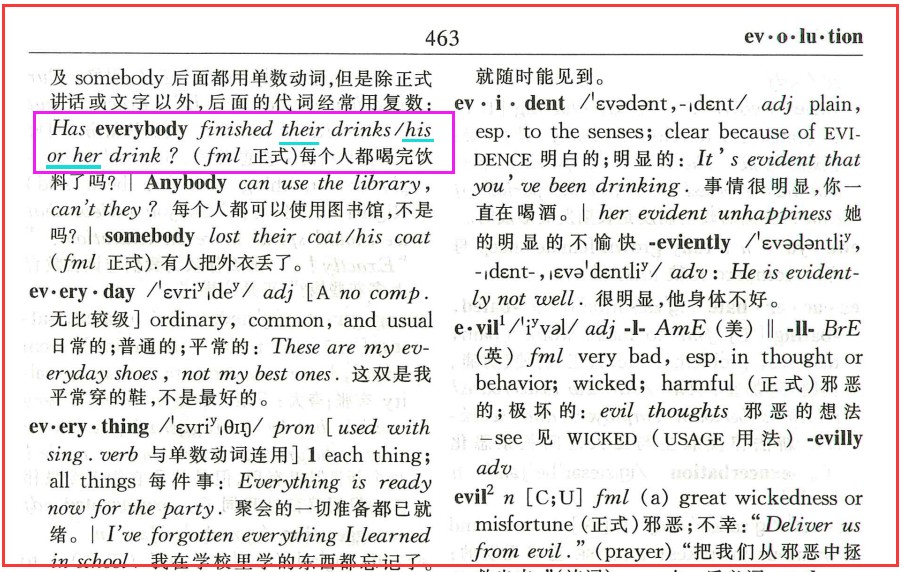3 为什么 everybody后面不能用 his or her 来指代
PEU第三版有这样一句:
When everybody had finished eating, the waiters took away their plates. 每个人都吃完了以后,服务员就把他们的盘子拿走了。(不能说:…his or her plate.)
最佳答案 2023-10-31 23:47
PEU的原意并不是说 everybody 一定不能用 his or her 来回指,而是说在某些特定的语境中不能用它,即在强调整体或者说强调所有人时不宜用它(这种强调要注意在具体境中去体会,没有固定的规则去死记)。
When everybody had finished eating, the waiters took away their plates.
这句话的语境是:人们在餐馆吃饭,当每个人都吃完了的时候,服务员肯定是把他们所有人的盘子都收走,即这是在整体或者说强调所有人,所以宜用 their。
另外还有一个很重要的点要注意,这句话的后面一句(即主句部分)已经换了主语 the waiters,如果仍是用 everybody 作主语,则仍是可以用 his or her 的,即完全可以说:
Everybody took away his or her (own) plate.
Everybody finished eating and then took away his or her (own) plate.
另外补充几个用 his or her 的例子:
Everybody raised his or her voice.
Everybody has to pay his or her taxes.
Everybody applauded his or her own son.
Everyone should bring his or her own lunch.
Everyone brought his or her partner to the party.
Everyone is special in his or her own way.
Everyone has his or her own ideas about what is important.
如果觉得我的回答对您有用,请随意打赏。你的支持将鼓励我继续创作!

- 3 关注
- 1 收藏,1563 浏览
- 马远兵 提出于 2023-09-16 22:24
相似问题
-
 《高考英语备考1号·速效编》
《高考英语备考1号·速效编》
-
 《高考英语备考1号·写作编》
《高考英语备考1号·写作编》
-
 《高中英语晨读晚记》
《高中英语晨读晚记》
-
 《高中英语错题笔记》
《高中英语错题笔记》
-
 《零起点考大学英语》
《零起点考大学英语》
-



